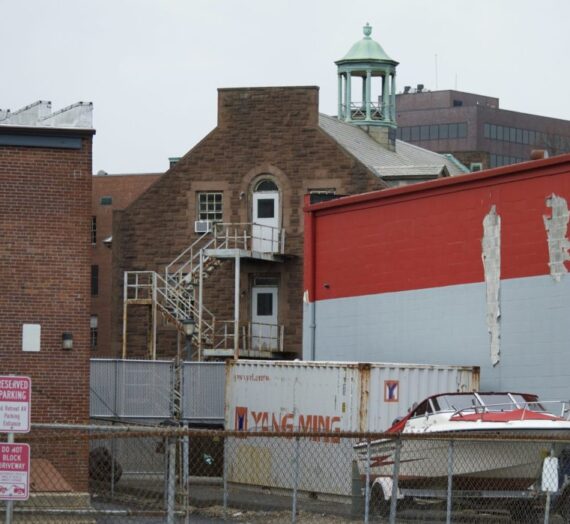
It’s not accurate to describe Hartford as being a food desert. This term implies that food is unavailable. The obesity rate says otherwise.
Instead, we should be calling it what it is — a food swamp. Prof. Molly Anderson used this phrase during her presentation at a recent forum held at the Lyceum. Rather than a lack of food being the problem, it’s that there is, in these areas, “far too much of the wrong kind of food,” she argued.
Food security was the topic of discussion at the “IForum” in late June. Anderson, the keynote speaker, delivered her presentation, “A Home’s Not Just a House: Why Food Security Must Be Part of a Strong, Affordable Community”; a response panel comprised of Julia Pon, Margaret Williams, and Martha Page followed.
Food security does not mean locking up your stash of chocolate chip cookies so that your family can’t decimate your supply. Instead, the World Health Organization provides this definition:
The World Food Summit of 1996 defined food security as existing “when all people at all times have access to sufficient, safe, nutritious food to maintain a healthy and active life”. Commonly, the concept of food security is defined as including both physical and economic access to food that meets people’s dietary needs as well as their food preferences.
A better phrasing for “food preferences” comes from the Community Food Security Coalition, which states that such food needs to be “culturally appropriate.”
But having healthy food available is only part of the issue. When half of all renters in Connecticut spend more than 30% of their household income on rent, decisions need to be made about which other items — food, utilities, health care, transportation, etc. — to spend the remainder on. Anderson said that “food swamps and insecurity” are a result of public policy; bad public policy also leads to energy insecurity, housing insecurity, and medical insecurity.
In her talk, Anderson explained that according to most recent data (2009), 85.3% of households in the United States have food security. About 6% of American households have very low food security, which means that there is not enough food regularly; this situation entails people skipping meals, not eating nutritionally balanced ones, and in some cases, going hungry for days at a time.
“Food insecurity and obesity are health and equity issues,” Anderson said. She presented data that showed how this issue was not just one of class — race and gender are also tied in. Households headed by a single mother are at the highest risk for food insecurity.
 To change the food system, she presented several actions from least-to-most effective: bringing people to healthy food (improving public transportation and providing vouchers for specific farmsteads), bringing good food and food growing possibilities to the people (opening full service grocery stores in areas of need and encouraging people to garden), and designing affordable housing with access to the aforementioned opportunities.
To change the food system, she presented several actions from least-to-most effective: bringing people to healthy food (improving public transportation and providing vouchers for specific farmsteads), bringing good food and food growing possibilities to the people (opening full service grocery stores in areas of need and encouraging people to garden), and designing affordable housing with access to the aforementioned opportunities.
The response panel provided more perspectives on food security. Martha Page, Executive Director of Hartford Food System, said that “program informs policy,” noting the recent experience of obtaining use of the lot at Main and Park. This long vacant space is now being used by Grow Hartford as a productive space; there is an agreement with the City to vacate this spot if a viable commercial use is proposed.
Julia Pon, the Connecticut Program Manager of Wholesome Wave, said that residents in underrepresented neighborhoods need more reason than just food to show up for farmers’ markets. She noted the need for other services to be available. Page added to this that the North End Farmers’ Market is located where it is because of proximity to Health and Human Services; there are activities like book giveaways and health screenings to incentivize residents to patronize this market.
Margaret Williams, Executive Director of The Food Project of Lincoln, MA, said that her organization is “really about social justice.” Over 100 youth will work on a farm and get paid for it; they will also build 400 raised beds for backyard gardeners. “Healthy urban ecosystems,” she said, “are regional.”
After adjourning, participants and the audience were encouraged to walk across Lawrence Street to visit the Farmers’ Market at Billings Forge, which is located right next to residents’ raised garden beds.
